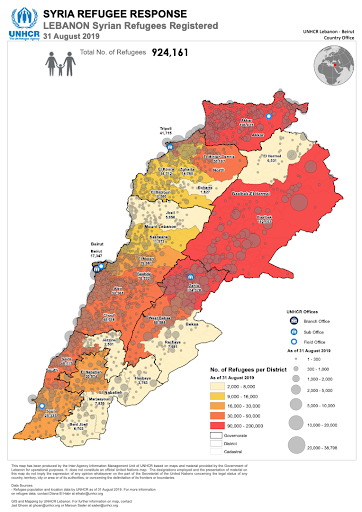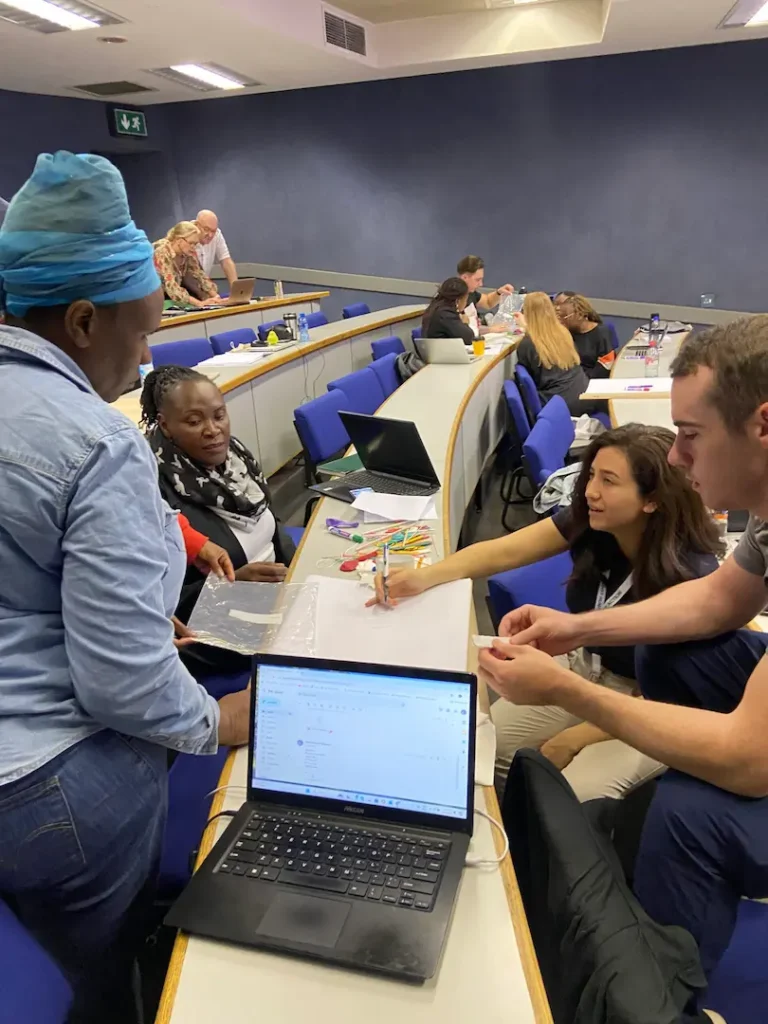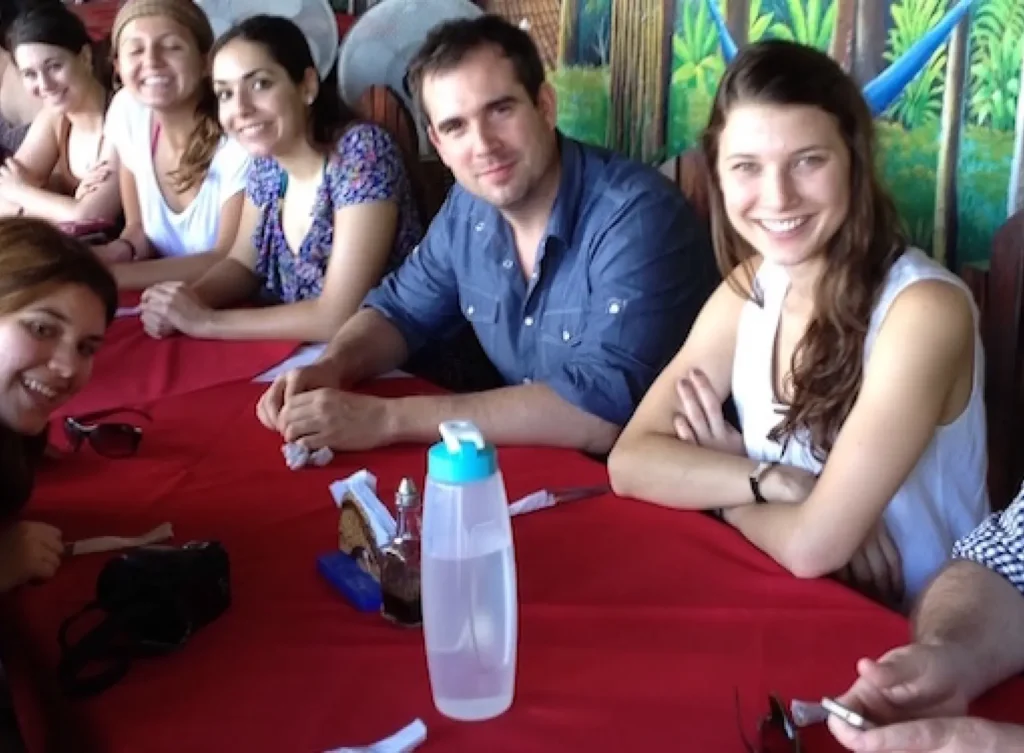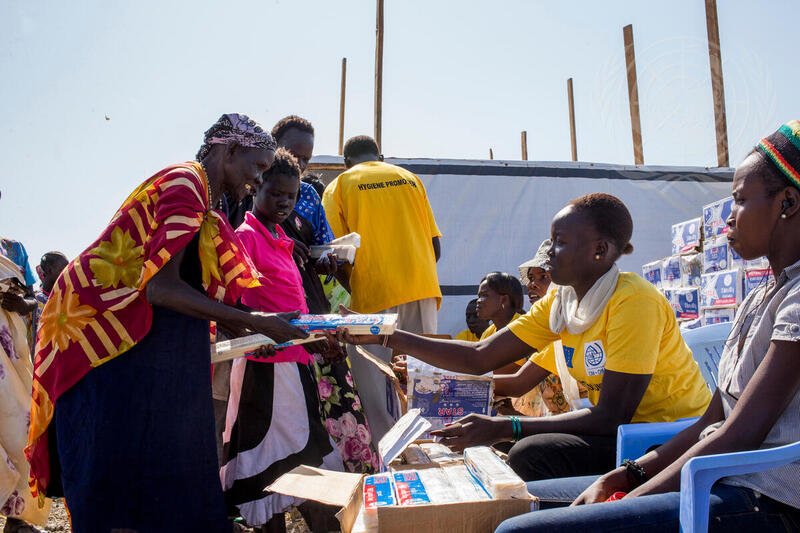The Institute of International Humanitarian Affairs offers non-credit professional courses for practitioners around the world. Each professional course for Fall 2026 is designed to prepare current and future aid workers with the knowledge and skills needed to respond effectively to humanitarian crises and disasters.
Semester-long courses include:
*Course dates may vary slightly according to each syllabus. Please check with your professor.
** PLEASE READ **
Visa Requirements:
If you’re an international applicant seeking a non-immigrant visa to enter the US, please note taking this course alone does not qualify you for a student visa (F-1). Payment is due only after you have received your visa.
What the course fee covers:
Enrolling in any Humanitarian Training Course (HTC) will only cover the course content. None of these courses cover any form of accommodations or travel. Any personal costs will be the sole responsibility of the student.
Scholarship:
There is no funding available to support students for any of the upcoming Fall 2026 Humanitarian Training Courses. Whether you are enrolling as a certificate student (no academic credit) or a credit-bearing student, you will be fully responsible for paying your tuition fees.
Important Information for International Students:
The program is self-funded. Covering tuition, fees, and living expenses in New York for 12 months is the sole responsibility of the incoming student. Scholarships and graduate assistantships are not available for this program. Attending this program does not qualify for a student visa; therefore, visa assistance is not provided by the university.

Learn more about this course drop-down:
Humanitarian Advocacy will…
This course…
Online Synchronous I Fridays 5:30 pm – 7:20 pm ET
Humanitarians work in hostile environments where people are struggling for survival in situations of armed conflict or natural disasters. In such environments, people may have been forced to flee their homes with few—if any—belongings and may have suffered or witnessed human rights violations. Their plight needs to be communicated to the world in a way that will motivate the deployment of the protection and aid they so desperately need. This course will prepare students for the task of advocacy in humanitarian environments. It will focus on the identification of the most vulnerable members of a large group of survivors and the communication of their needs. It will equip students with the skills required to effectively communicate with local authorities as well as the international donor community. Students will learn to write in a different way than the academic style expected in other courses, focusing on effective advocacy messaging. This course is recommended for students who may envision working directly in advocacy for responding to humanitarian needs. It is also recommended for humanitarian practitioners who wish to prepare for a role in advocacy or are already working in this area.
Upon fulfilling the course requirements described in the syllabus, non-credit students will receive a Certificate of Completion from Fordham University.
Example Units:
| How to advocate with instead of for | The Science Behind an Advocacy Campaign | The Art of an Advocacy Campaign | Power and Exclusion in Humanitarian Settings |
Online Synchronous I Thursdays 5:30 pm – 7:20 pm ET
This course will introduce students to the principles and strategies behind the effective flow of information in a humanitarian setting. Gathering and managing information is crucial in order to understand the cause of the emergency, identify impacted populations, and determine crisis-afflicted geographical locations. The aim of this course is for students to understand the components of a successful information management network within a humanitarian intervention and identify how information can contribute to future preparedness.
This is a core requirement for students enrolled in the MSHS program.
Upon fulfilling the course requirements described in the syllabus, non-credit students will receive a Certificate of Completion from Fordham University.
This course…

Humanitarian Crisis Life-cycle: Case Studies sample |
|
|

Example Units:
The Beginnings of Humanitarian Codification | Who is a Civilian? | The Responsibility to Protect: Whom and from What? | The Criminalization of Humanitarian Action |
Online Synchronous I Wednesdays 5:30 pm-7:20 pm ET
This course will introduce students to the principles of humanitarian action through three modules on (1) Defining Humanitarian Assistance, (2) Management, and (3) Strategic Planning. The aim of the course is to provide an overview of the critical aspects of international humanitarian coordination from an organizational perspective.
This is a core requirement for students enrolled in the MSHS program.
Upon fulfilling the course requirements described in the syllabus, non-credit students will receive a Certificate of Completion from Fordham University.
This course…
*Online Asynchronous
This is a training course for mental health professionals and program staff who wish to establish mental health or psychosocial programs in a humanitarian context within conflict and post-conflict areas. This course is also open to Fordham graduate students in humanitarian studies or other relevant disciplines. It will aim to provide practical orientation and training, including how to conduct rapid assessments, designing and setting up mental health services or psychosocial programs (exploring the differences between them), and clinical work and therapeutic approaches in non-Western contexts. It will address the issues of cultural validity, conflict resolution and negotiation, taking care of oneself and dealing with burnout. This course will also introduce potential field workers to essentials such as personal security, logistics, and practical aspects of humanitarian work in the field.
*The MHCE course includes online weekly meetings.
Upon fulfilling the course requirements described in the syllabus, non-credit students will receive a Certificate of Completion from Fordham University.
This course…

Example Units:
Setting up mental health and psychosocial programs in emergencies | Stress Reactions and Interventions | Security and risk assessment & Taking care of ourselves | Human rights and conflict |

Example Units:
Defining the scope of humanitarian response | Funding sources | Opening an office/General ideas in logistic | Human resources/stress management |
Mondays from 5:30 pm-7:20 pm ET I In-person lecture at Lincoln Center campus
This course will introduce students to the operational aspects of humanitarian response and focus primarily on the role of human resources (HR) and financial management. In response to the continuing professionalization of the humanitarian sector, this course will provide students with a common understanding of hiring practices, budget management, and donor relations in a humanitarian intervention.
This is a core requirement for students enrolled in the MSHS program.
Upon fulfilling the course requirements described in the syllabus, non-credit students will receive a Certificate of Completion from Fordham University.
This course will…
Tuesdays, 5:30-7:20 pm I In-person at Lincoln Center campus
This course will provide students with a comprehensive introduction to international frameworks and norms concerning the protection of vulnerable populations in humanitarian emergencies. In crisis settings, vulnerable persons and especially people with intersecting vulnerabilities are especially at risk of harm. In this course students will consider why protection for vulnerable persons remains such a challenge despite multiple international protection frameworks that have been widely adopted by States as well as humanitarian agencies and other groups. Through case studies emphasizing the perspectives of affected populations, we will examine protection standards and mechanisms, violations, and efforts at ensuring accountability. Students will gain an understanding of the primary concerns affecting vulnerable persons, the legal frameworks underpinning protection, and the landscape of organizations and entities involved, and will assess the efficacy and continued relevance of our methods of addressing protection for vulnerable persons. Throughout the course, we will identify challenges, as well as opportunities for strengthening standards and implementation methods in conflict and post-conflict settings.
Upon fulfilling the course requirements described in the syllabus, non-credit students will receive a Certificate of Completion from Fordham University.
This course…

Example Units:
Revisiting international frameworks: sources, venues, methods, players | Setting the agenda: Human rights protections by whom and for whom? | Documentation: The power of the story and the storyteller | Inclusion and exclusion in international fora |
“Establishing mental health programs in challenging environments necessitates a multi-sectoral approach. However, it is essential to first understand the operational context, the fundamental principles of mental health support, and the specific needs of the populations we serve. This understanding is critical to ensuring that our interventions do not cause harm and, in alignment with humanitarian principles, deliver high-quality support.”

Fall 2024 MHCE Alumna
Senior GBV Associate at UNHCR, the UN Refugee Agency